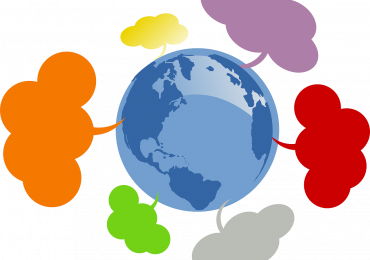This is the last in our series of blogs on Africa. In previous blogs, we have looked at how African society might change in the 21st century, at how technology will affect Africa, the big environmental issues Africa faces, and Africa’s economic prospects. In this blog we look at the critical question of Africa’s governance, and end with an African President’s own ambitious vision for his country.
A snapshot of Africa today paints a very mixed picture:
- Some countries, such as Senegal and Ghana, have stable democratic systems, which preside over growing prosperity and opportunity
- Other governments, such as those of Ethiopia and Uganda (which both have a history of civil wars and coups), are only partly democratic, but are still also presiding over growing prosperity
- Other states, such as Zimbabwe, seem locked in a system of undemocratic “strong man” rule, high levels of economic mismanagement and popular discontent
- And finally, some countries are trapped in long-term and continuing wars, which means that Governments either have little control, or control only parts of those countries
Thus, we see in Africa a diversity of approaches to governance, and wide variations in the effectiveness and quality of governments. So we need to look beyond a snapshot and ask where is Africa heading in terms of its governance.
As Europeans commentating on Africa, we first need to check our privileges and our assumptions. We tend to assume that Western models are the best ones. That can look very different in Africa, where the experience of the West is viewed through the lens of slavery, resource exploitation, colonialism and debt.
It is perhaps better to start by looking at what African people themselves want. In 2015, the African Union published “The Africa We Want”, a visioning exercise based on extensive consultation with African Governments and people. The ultimate aspiration is summed up as:
“An integrated, prosperous and peaceful Africa, driven by its own citizens, representing a dynamic force in the international arena”
Agenda 2063, which is the AU’s plan for implementing its vision, sets out seven headline priorities:
- A Prosperous Africa, based on inclusive growth and sustainable development
- An Integrated Continent politically united and based on the ideals of pan Africanism and the vision of African renaissance
- An Africa of Good Governance, Democracy, Respect for Human Rights, Justice and the Rule of Law
- A Peaceful and Secure Africa
- Africa with a Strong Cultural Identity Common Heritage, Values and Ethics
- An Africa Whose Development is people driven, relying on the potential offered by African People, especially its Women and Youth, and caring for Children
- An Africa as a Strong, United, Resilient and Influential global player and partner
So, Good governance, democracy, human rights and the rule of law, but also a more self-confident Africa, increasingly working together across the AU, and projecting itself as a global player. This is not merely a political question of course: the announcement this year of the African Continental Free Trade Area (AfCFTA) is an expression of the desire to see a stronger Africa, projecting into the world as a growing, and self-confident continent.
The danger is that these plans amount to little in the face of deeply embedded issues of inter- and intra-regional and national tensions, and continuing issues with corruption. We see in real examples of unity in action – in the African Union’s military missions in Somalia, Mali, Burundi and Sudan; in the AU’s co-operation with NATO; in the formation of AfCFTA and bodies like ECOWAS – concrete expressions of ambition and hope for the future.
A comprehensive 2017 report by the EU’s Institute for Security Studies gives a cautiously optimistic picture, suggesting that the number of military coups in Africa has declined in this century (and the number of successful coups is declining faster), and that many of Africa’s long-standing “strong man” rulers are now quitting the stage. Democracy is becoming more common, but these democracies are as yet imperfect. Freedom House ranks 89% of African countries either as “not free” or “partly free”. Whilst the African think tank Afrobarometer found in a survey of 36 countries, in 26 of them demand for democracy outweighed supply. So Africa is moving in the direction desired in The Africa We Want, but has further to go.
So what does this mean for African people? Again Afrobarometer, which specialises in carrying out research surveys across the continent, and in individual countries, sheds useful light. Global Corruption Barometer – Africa 2019 finds that more than one in four people who accessed public services reported that they had to pay a bribe. The majority of respondents in 35 African countries believe that corruption is getting worse, and their government is making a poor job of combating it.
The report also finds that corruption most adversely affects the poorest, who have to pay bribes twice as often, and young people, more than old.
Another Afrobarometer report, published this year, indicates that while there has undoubtedly been a shift away from one-party and military regimes towards multi-party democracy, and almost all countries have introduced a regular electoral cycle (usually five years) and presidential term limits (usually two), these are sometimes breached – for example in Togo this year and the Democratic Republic of Congo in December 2018.
The survey shows that despite these concerns, most respondents (across over 30 countries) support the move to democracy in principle and judge its success in practice by the extent that incumbent governments and governing parties, are replaced.
So How Might the Future Look?
The current trend towards democracy matches the aims of The Africa We Want, and the aspirations of the people surveyed by Afrobarometer. In previous blogs we have looked at factors that would encourage Africa to continue down the path towards democratic and more open societies. The growth of an urban middle class, economic development, the use of technology to facilitate both social and commercial transactions, and a burgeoning, and better educated young population might all indicate a brighter future.
But such a desirable outcome is not guaranteed. Economic setbacks and reverses due to natural and environmental problems – such as water wars or large-scale climate migrations – might see a reversion to more autocratic and less open rule. Similarly, some leaders may be tempted to seek to barter access to natural resources for foreign help in bolstering unpopular regimes and circumventing democratic processes. Similarly, religious and tribal conflicts may make open, democratic government almost impossible in some places.
We wonder whether the Beijing Consensus on economic development may also complicate matters. Lifting hundreds of millions out of poverty and a determined focus on economic development is attractive. As China continues to increase its investment, influence and reach on the continent, the democratic paradigm may come under serious challenge.
Watch This Space
We are sure that Africa will, in the 21stcentury, play a much larger and more of a leading role, in global affairs. Its young population will grow at a time when much of the rest of the world is aging and population beginning to shrink. Its economy and capacity of innovation and improvisation is already increasing impressively. It is becoming a magnet for inward investment. And its ambition to grow and thrive as a continent is clear.
But will it make it? In this context, the last word should go to an African.
In this You Tube clip – 9 minutes long – Ghanaian President Nana Akufo sets out his aspirations for Ghana (and for Africa) at a joint press conference with French President Macron. He speaks of “how we can develop our nations ourselves”. He refers to Africa’s vast mineral and agricultural wealth, and its growing young population. He observes that other regions have developed – when Ghana achieved its independence, its GDP per capita was greater than that of South Korea. His aim is to “build a Ghana beyond aid”, a Ghana that can retain and benefit from the talents of its young people.
It is both inspiring and ambitious.
We hope you enjoyed both it, and this blog series; we will certainly return to Africa very soon.
Written by David Lye, SAMI Fellow and Director and Jonathan Blanchard Smith, SAMI Fellow and Director
The views expressed are those of the author(s) and not necessarily of SAMI Consulting.
SAMI Consulting was founded in 1989 by Shell and St Andrews University. They have undertaken scenario planning projects for a wide range of UK and international organisations. Their core skill is providing the link between futures research and strategy.
If you enjoyed this blog from SAMI Consulting, the home of scenario planning, please sign up for our monthly newsletter at newreader@samiconsulting.co.uk and/or browse our website at http://www.samiconsulting.co.uk


